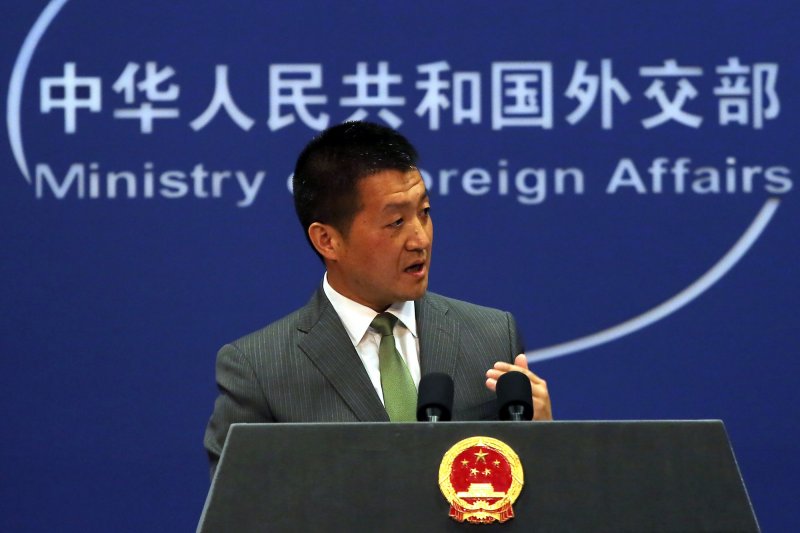Impact Of US Sanctions On Chinese Plastics Imports From Iran

Table of Contents
Disrupted Supply Chains and Increased Costs for Chinese Importers
The direct impact of US sanctions on Chinese importers of Iranian plastics is undeniable. Navigating the complexities of these restrictions has led to substantial increases in both the time and cost required to import these crucial raw materials. The sanctions have created a challenging environment for businesses reliant on Iranian plastic resin, polypropylene, and polyethylene.
- Increased shipping costs: Sanctions-related complexities have dramatically increased shipping costs. Finding compliant shipping lines willing to transport Iranian goods has become more difficult and expensive. This added expense is directly passed on to Chinese importers.
- Difficulty securing financing and insurance: Banks and insurance companies are hesitant to finance or insure transactions involving Iranian plastics due to the risk of violating US sanctions. This scarcity of financial instruments drives up costs and limits the volume of trade.
- Higher prices for Iranian plastics: The reduced supply of Iranian plastics, coupled with the increased risk associated with importing them, has driven up prices significantly. This price volatility makes it difficult for Chinese manufacturers to plan their production and maintain profit margins.
- Increased reliance on alternative suppliers: Chinese companies have been forced to diversify their sourcing of plastic raw materials, leading to increased reliance on alternative suppliers in countries like Saudi Arabia, Russia, and Southeast Asia. This shift may lead to quality inconsistencies or longer lead times, affecting production schedules and potentially product quality.
Shifting Global Plastics Trade Dynamics and Increased Competition
The US sanctions on Iranian plastics have fundamentally reshaped global trade dynamics, forcing China to seek alternative sources of supply. This diversification has created both opportunities and challenges.
- Increased competition among alternative suppliers: The influx of new players into the market has led to increased competition among alternative suppliers, potentially resulting in price wars and creating a more buyer-friendly environment for China.
- The emergence of new trade relationships: China is actively developing new trade relationships with countries previously less involved in the global plastics market. This shift strengthens economic ties with these alternative suppliers, and reshapes the global map of plastic production and trade.
- Geographic shifts in plastic production and consumption: The sanctions have accelerated the geographic shift in plastic production and consumption, potentially leading to a more decentralized and geographically diverse industry.
- Potential long-term impacts on global plastic trade dynamics: The long-term effects of these shifts are yet to fully unfold but are likely to result in a more complex and dynamic global plastics trade landscape.
Impact on Specific Types of Plastics
The impact of sanctions varies across different types of plastics. Polypropylene (PP) and polyethylene (PE), essential components in countless products, have been particularly affected. The reduced availability of Iranian PP and PE has led to price increases and supply shortages, impacting Chinese manufacturers reliant on these materials. Other plastics like PVC and PET have also experienced disruptions, although the extent of the impact varies based on the specific market segment. The need to substitute Iranian plastics with alternatives has necessitated adjustments in manufacturing processes and product formulations for some Chinese companies.
Geopolitical Implications and US Foreign Policy Objectives
The sanctions on Iranian plastics are deeply embedded in the broader geopolitical context of US-Iran relations. The sanctions are a key instrument in the US's broader foreign policy strategy aimed at pressuring Iran on various fronts, including its nuclear program.
- Effectiveness of sanctions in achieving US policy goals: The effectiveness of these sanctions in achieving their intended policy objectives remains a subject of ongoing debate. While they have undoubtedly disrupted Iran's economy, their overall impact on Iran's foreign policy remains complex and contested.
- Unintended consequences of sanctions on global trade and economic stability: The sanctions have had unintended consequences, disrupting global trade flows and impacting economic stability in various regions. This highlights the complex interconnectedness of the global economy.
- Potential for escalation or de-escalation of tensions between the US and Iran: The sanctions contribute to the complex and often tense relationship between the US and Iran. The potential for escalation or de-escalation of tensions depends on various factors, including broader geopolitical developments and the responses of involved parties.
Conclusion
The US sanctions on Iranian plastics have had a profound and multifaceted impact on China's import landscape. Supply chains have been severely disrupted, leading to increased costs and price volatility for Chinese importers. This has spurred a significant shift in global trade dynamics, forcing China to seek alternative suppliers and reshape its relationships within the global petrochemical industry. Understanding the ongoing impact of US sanctions on Chinese plastics imports from Iran is crucial for navigating the complexities of international trade and the evolving dynamics of the global plastics market. Stay informed about changes in global plastics trade and deepen your understanding of the complexities of China-Iran trade relations to better anticipate future shifts in this crucial sector.

Featured Posts
-
 Beyond Boston Analyzing The Cavaliers Biggest Playoff Rivals
May 07, 2025
Beyond Boston Analyzing The Cavaliers Biggest Playoff Rivals
May 07, 2025 -
 The Story Behind Draymond Greens Night Night Celebration And Steph Currys Response
May 07, 2025
The Story Behind Draymond Greens Night Night Celebration And Steph Currys Response
May 07, 2025 -
 Jenna Ortega Why Shes The Next Scream Queen Of Horror
May 07, 2025
Jenna Ortega Why Shes The Next Scream Queen Of Horror
May 07, 2025 -
 Xrp Distribution Sbi Holdings Rewards Shareholders Ripple News Update
May 07, 2025
Xrp Distribution Sbi Holdings Rewards Shareholders Ripple News Update
May 07, 2025 -
 Buducnost Svetoveho Pohara 2028 Vplyv Nhl A Otazka Ucasti Ruska
May 07, 2025
Buducnost Svetoveho Pohara 2028 Vplyv Nhl A Otazka Ucasti Ruska
May 07, 2025
